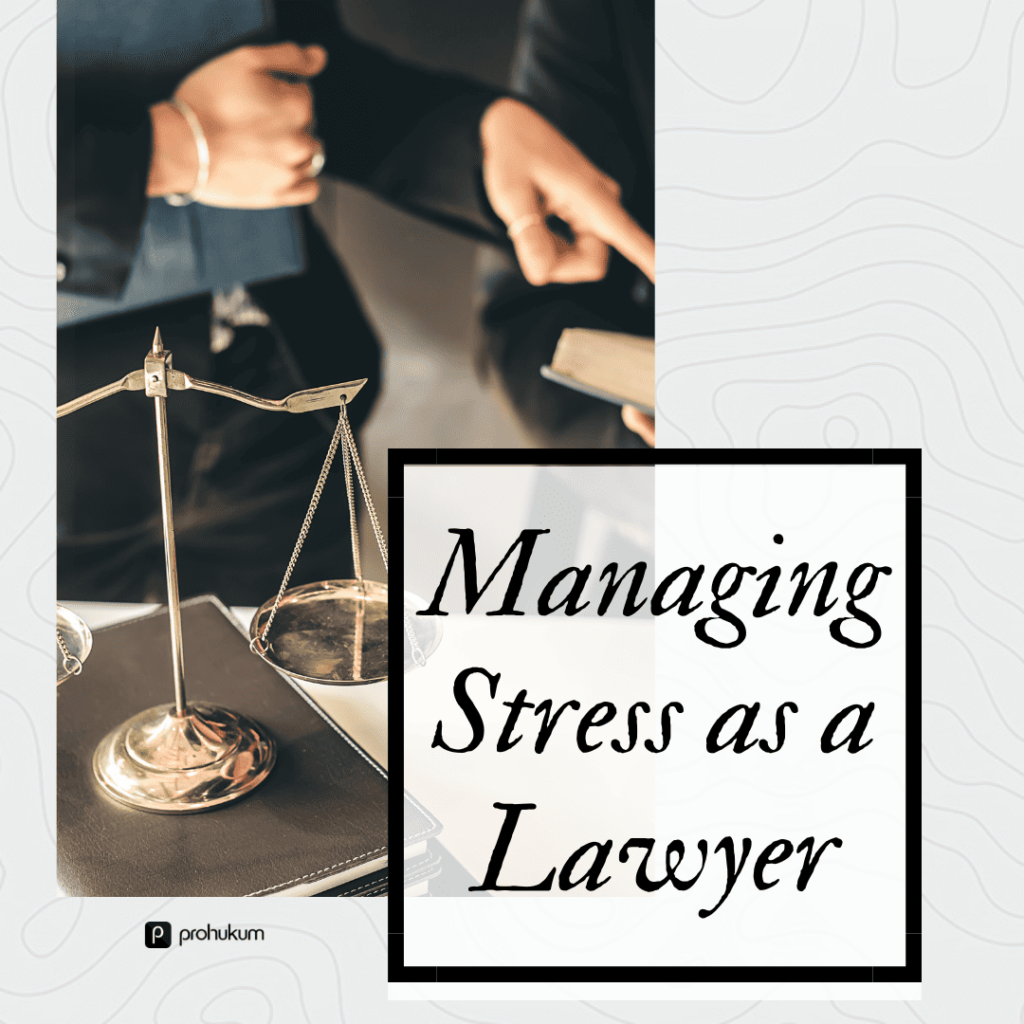Being a lawyer is one of the most challenging professions. The pressure from demanding clients, tight deadlines, and the complexity of cases that need to be solved can quickly lead to overwhelming stress. Stress management for lawyers becomes crucial in this fast-paced environment. Additionally, the emotional toll of handling sensitive cases often adds to the psychological burden. However, it is essential for lawyers to focus on managing stress as a lawyer to maintain their emotional balance. By doing so, they can provide the best service to clients while also preserving their personal quality of life.

This article will discuss several tips and strategies that can help lawyers manage stress, stay calm, and maintain productivity despite being under high pressure in their profession.
Recognizing the Signs of Stress
The first step in managing stress is realizing that you are experiencing it. Many lawyers feel that they must always be in an intense work mode without paying attention to their emotional well-being. Unmanaged stress can lead to physical and mental exhaustion, which can reduce performance and happiness.
Some signs of stress to watch for include:
- Constant physical and mental fatigue.
- Sleep disturbances or restless sleep.
- Difficulty concentrating or making decisions.
- Muscle tension, headaches, or digestive problems.
- Uncontrolled emotions, such as irritability or anxiety.
Identifying these symptoms early on can help you take steps to manage stress more effectively.
Manage Your Time Wisely: Don’t Let Deadlines Control You
One of the main causes of stress among lawyers is the constant onslaught of deadlines. Juggling multiple tasks at once can be very challenging, but with good time management, you can avoid unnecessary stress.
Maintain Physical and Mental Health
Physical and mental health are two crucial aspects of managing stress. Lawyers often get caught up in their busy routines and forget the importance of taking care of their bodies. Regular exercise, sufficient sleep, and a healthy diet can help reduce stress levels and improve concentration.
- Exercise regularly: Physical activities like running, yoga, or even walking can be very effective in reducing stress. Exercise stimulates the release of endorphins, known as the “happiness hormone,” which can improve mood and reduce anxiety.
- Meditation and deep breathing: Practicing meditation can help you stay calm and focused. Try to take a few minutes every day for mindfulness or deep breathing exercises.
- Get enough sleep: Don’t underestimate the importance of sleep. Physical exhaustion can worsen stress, so ensure you get enough rest each night to recharge.
Build a Strong Social Support Network
Lawyers often feel isolated, especially when they are overwhelmed with tasks. Having a strong support network, whether it’s family, friends, or colleagues, can help you feel more connected and reduce stress.
- Talk to colleagues: Don’t hesitate to talk to your peers who may be facing similar challenges. Sharing experiences and offering support to each other can lighten the load.
- Build relationships with mentors or professional counselors: Sometimes, getting perspective from someone more experienced or a professional can help you see problems from a more objective viewpoint and find better solutions.
Maintain Work-Life Balance
Maintaining a balance between work and personal life is crucial in reducing stress. Lawyers often work long hours and neglect time for themselves. However, time to relax and enjoy activities outside of work is essential for maintaining well-being.
- Set time for yourself: Make time to engage in activities you enjoy outside of work, such as spending time with family, going on vacations, or enjoying personal hobbies.
- Set work boundaries: Try to establish a schedule that allows you to complete tasks during regular work hours, without bringing work home. This will help you feel more relaxed and prevent burnout.
Relaxation and Mindfulness Techniques
To cope with stress in the legal profession, relaxation techniques like meditation and mindfulness can be very helpful. Practicing mindfulness helps you stay present in the moment and not worry too much about things that haven’t happened yet.
- Meditation: Take a few minutes every day to sit still, focus on your breathing, and calm your mind. Meditation has been shown to reduce stress levels and improve focus.
- Visualization: Positive visualization techniques can also help lawyers cope with stress. Try imagining yourself successfully handling a case and feeling satisfied with the outcome.
Managing stress as a lawyer is undoubtedly challenging, but with the right strategies for managing stress as a lawyer, you can maintain your emotional and physical balance even in the midst of a storm of cases. By managing your time wisely, maintaining your health, building social support, and developing relaxation habits, lawyers can stay calm and productive. The reference books mentioned also provide deeper insights on how to manage stress in the legal profession. Don’t let stress take over your life. Instead, use these strategies for stress management as a lawyer to face it and continue to excel in your legal career.
